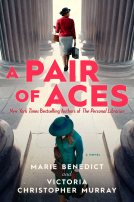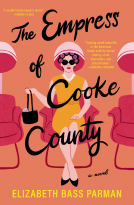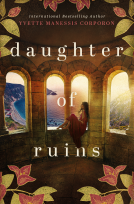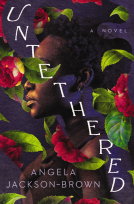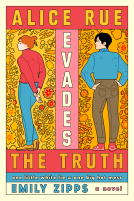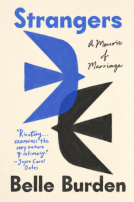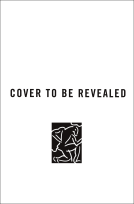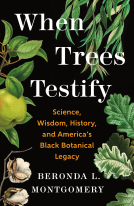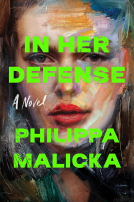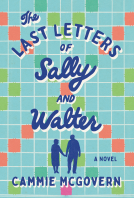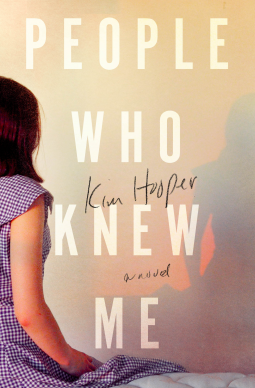
People Who Knew Me
A Novel
by Kim Hooper
This title was previously available on NetGalley and is now archived.
Send NetGalley books directly to your Kindle or Kindle app
1
To read on a Kindle or Kindle app, please add kindle@netgalley.com as an approved email address to receive files in your Amazon account. Click here for step-by-step instructions.
2
Also find your Kindle email address within your Amazon account, and enter it here.
Pub Date May 24 2016 | Archive Date Jul 15 2016
Description
Everything was fine fourteen years after she left New York.
Until suddenly, one day, it wasn’t.
Emily Morris got her happily-ever-after earlier than most. Married at a young age to a man she loved passionately, she was building the life she always wanted. But when enormous stress threatened her marriage, Emily made some rash decisions. That’s when she fell in love with someone else. That’s when she got pregnant.
Resolved to tell her husband of the affair and to leave him for the father of her child, Emily’s plans are thwarted when the world is suddenly split open on 9/11. It’s amid terrible tragedy that she finds her freedom, as she leaves New York City to start a new life. It’s not easy, but Emily---now Connie Prynne—forges a new happily-ever-after in California. But when a life-threatening diagnosis upends her life, she is forced to rethink her life for the good of her thirteen-year-old daughter.
A riveting debut in which a woman must confront her own past in order to secure the future of her daughter, Kim Hooper's People Who Knew Me asks: “What would you do?”
A Note From the Publisher
O N E
People who knew me think I’m dead.
The words rolled around the back of my throat, like clothes in a slow spin cycle. I’d just hailed a taxi, settled into my seat, its seams split to reveal yellow foam beneath. The cab smelled like pine. I expected to see one of those air fresheners hanging from the rearview mirror, but there wasn’t one.
The cabbie’s name was Angel Rivera. According to the identification badge on the dashboard, that is. He was forty-something, with a gold chain around his neck and a faded sticker of the Puerto Rican flag on his glove compartment. He looked straight ahead, didn’t dare make eye contact with me via the mirror. A week before, planes flew into buildings and people died. The ones left behind—me, Angel Rivera, all of us—responded by either embracing everyone or trusting no one.
I trusted no one.
“Newark Airport, please,” I said. He didn’t respond, just nodded and navigated his way to the Henry Hudson Parkway, my road out of everything.
I had my purse under one arm, an overnight bag under the other. To Angel Rivera, I must have looked like a woman committed to her career, flying off to a business meeting in Philadelphia or D.C. or Boston or some other place requiring just an over- night bag. Maybe he resented the tight bun on top of my head, the height of my heels, the obvious expense of my blouse and per- fectly fitting skirt—the same blouse and skirt I’d worn the day before those buildings fell. He didn’t want to be there, driving around someone like me. He wanted to be home with the family I pictured him to have—a few kids and a wife who cleaned apartments or waited tables or worked as a nanny for women like me, overnight-bag-carrying women who left their loved ones for big-city meetings. He wanted to hold that family close because we’d all learned a week before that anything could happen.
There was none of the usual traffic leading to the Holland Tunnel. We drove right in. I closed my eyes, like I used to as a kid, making wishes in the darkness. As I said good-bye to New York, my only wish was for everyone I left behind to forget me.
Forgiveness was too much to ask for.
Light filled the cab as we exited the tunnel. I opened my purse and counted the cash discreetly. I’d cut up all my credit cards and my ATM card, flushed the bits down the toilet. I kept my driver’s license. I’d need it as identification to get on the plane. There was no way around that. Renting a car would have required ID, too. I’d briefly considered stealing a car, but was sure I’d screw that up. I’d end up in jail, begging the cops to keep me there forever instead of calling my confused husband to bail me out. They’d write me up as a mental case, which I probably was. So I decided to fly, to be one of the brave few to board a plane so soon after what had happened. The uniformed guys at the security gate would be on higher alert than ever before, but my ID wouldn’t raise any eyebrows. Nobody would be checking for an Emily Morris catch- ing a flight from New Jersey to California. Emily Morris was dead. I stared out the window as we took the Pulaski Skyway over the Passaic and Hackensack rivers. I grew up there—in Jersey. My mom still lived in Irvington. I’d never see those rivers, or her, again. Even though we weren’t close, my mom and I, the finality of it all should have brought me to tears. But I just sat tight-lipped and unblinking. I was already becoming a different person, a colder person.
I’d cried over so many smaller things before. I’d cried at the sight of dead dogs on the side of the road, their fur fluttering in wind generated by passing cars. I’d cried when that gymnast busted her knee in the 1996 summer Olympics. I’d cried when I sold my first car, a run-down 1985 Honda Civic. The tears weren’t for the vehicle itself, but for the memories associated with it— driving out to Coney Island during the summer before college, stuffing all my belongings in the hatchback for the move to the dorms at NYU, kissing the guy who would become my husband in the front seat after seeing City Slickers in a second-run theater with sticky floors from spilled sodas. He didn’t have a car. That’s why he drove mine.
But I couldn’t cry in Angel Rivera’s cab. I’d cried all my tears in the days leading up to the decision to leave. Tears for love lost when the buildings fell, tears for necessary choices, and tears for me—because, after all, I had died.
T W O
It was fourteen years ago when I got into Angel Rivera’s cab. Four- teen years. Sometimes it feels like yesterday. Sometimes it feels like a dream.
I wasn’t alone in that cab. My daughter was growing inside me. I’d thought long and hard about ending the pregnancy. My plan to move across the country and begin a completely new life made no sense with a baby. I would be lost. I would be utterly alone. Maybe that’s why I wanted to keep her, so I wouldn’t be.
“Current temperature of seventy-three degrees. Can’t beat the weather,” the overly peppy flight attendant said when we landed in Los Angeles. I’d always wanted to go to California. And it had the added bonus of being the farthest away from New York that I could get without crossing an ocean or leaving the country. In California, people meditated and grew avocados in their backyards and kept bathing suits in their top dresser drawers. In New York, blood pressure ran high, produce arrived in trucks tired from cross-country journeys, and bathing suits, if owned at all, were tucked away with old Halloween costumes. I thought of California as being full of transplants like me, people starting over, anew, again. I could get lost in crowds of people also trying to get lost.
People think it’s easy to be anonymous in New York. It’s not. The subway system creates an intimacy that even the coldest New Yorker can’t avoid. California has highways full of people hiding in cars behind tinted windshields and knockoff sunglasses.
That first day when I arrived, I checked into a Motel 6 in down- town Los Angeles, next door to what might have been a crack house. I got a hamburger from McDonald’s and flipped through the classifieds, looking for rooms to rent. I was convinced there were bugs in the sheets, so I stripped the bed and lay flat on the mattress. The room smelled like cigarette smoke. I apologized to my pregnant belly.
I couldn’t sleep. I tossed and turned. What kind of future would I be able to offer my child? I had enough cash to secure an apartment and hold me over for a few weeks, but then what? I had no prospects. I couldn’t return to the career I’d started as Emily Morris. The promising life she had was dead. In the midst of my panic, I started singing “Twinkle, Twinkle, Little Star” and, somehow, I became calm, eerily calm. Life would be simpler, I thought. I’d strip it down to its bare essentials, change my definition of happiness to include just food and shelter for my baby and me. On the plane ride, I sat behind two backpackers embarking on a trek through Yosemite. They were talking about the simplicity of leaving everything behind, only having to worry about the weight on their backs. My focus could be similarly, pleasantly narrowed. I said, out loud, to my future child, “It will be okay. Just you and me now.”
Connie Prynne. That’s the name I chose. My reasons were juvenile, really. I picked the first name of my favorite book character, Connie Chatterley in Lady Chatterley’s Lover, and the last name of my second-favorite, Hester Prynne in The Scarlet Letter. I’d been a literature major in college—or, rather, Emily Morris had. Connie is from Florida. She graduated from Miami Central High School but never went to college. She moved to California when she was eighteen, following a boyfriend who had a pipe dream of becoming an actor. They broke up, he went back to Florida, she stayed. Her parents died in a freak boating accident when she was twenty-two. She has no siblings. Connie Prynne is a person without strings. In other words, free.
I assumed I’d find someone in a back alley to make me a fake ID. I’d use that to open accounts, start my life. Just like in the movies. It’d be as simple as switching from signing checks and forms as Emily Morris to signing them as Connie Prynne. But I realized I’d run into trouble when I got a job, when my name and paperwork would travel to the government for tax purposes and some old lady at a desk cluttered with Styrofoam coffee cups and pictures of grandchildren would scratch her head, unable to find evidence of my actual existence. I’d be locked up for some kind of fraud. I’d have taken the risk if it was just me, but I had Claire. That’s what I named my little girl—Claire.
So I did it the legal way. It’s always bothered me that there’s evidence somewhere of who I used to be. For those first couple of years, I was convinced someone would find me out and come knocking on the door. My nightly lullaby was the reminder that nobody from my past would put out an inquiry for a woman they believed had died. I only had to worry about people in my present, which was why I vowed not to allow any people in my present.
Just Claire and me.
I didn’t want friends. I didn’t want lovers. I wasn’t willing or able to take on anyone else. I was still mourning the people left behind in New York, the people who knew me. I was full-up with them. There wasn’t room for someone new. That’s what relation- ships are, after all—making room for other human beings, with all their requisite feelings and needs and demands and expectations. And it’s always a risk. People can disappear at any moment. The problem is, no man is an island. Ironically, I’d written a college paper about the John Donne poem containing that very line. Turns out that overly used, trite phrase bears an annoying truth. You can’t go it alone, no matter how hard you try. Over the past fourteen years I’ve acquired a couple of people in my life, in spite of myself. One is JT. One is Al.
Those first eight months in California, I rented a crappy apart- ment in a not-so-great part of Canoga Park, in the Valley. Claire was born on May 9. The week after I brought her home, there was a gang-related homicide on our block. With those new-mother hormones coursing through my body, I considered going back to New York, I really did. But then I came across an ad in the classifieds for a cottage in Topanga Canyon. It seemed too cheap and good to be true, but I called anyway. The next day, I went to see the place and meet the owner, JT. It was one of Claire’s first excursions into the world. I had her strapped to my chest. I called her my “roo,” my little kangaroo.
JT had deep lines in his face, evidence of six decades of life. A long gray ponytail trailed down his back, likely growing nonstop since his hippie days. He was missing a front tooth.
“Is there some kind of catch?” I asked him. It was only $1,100 a month—half the price it should have been, at least. It was—still is—perfect: two bedrooms, two bathrooms, a small kitchen, a small living space, and a possibly rotting back deck, complete with a fraying hammock.
“No catch,” he said. “I just don’t want to sell it. Need someone good to look after it.”
We stood there on the deck, the wind chimes doing their musical thing. Claire was dead asleep on me, drooling on my shoulder. JT squinted in the setting sun. I wanted to hug him.
“You’re my savior,” I said.
He laughed and said, “I’ve been told I look like Jesus.” Maybe that’s what the J stood for.
In addition to offering me a place to live, JT suggested I check out his friend’s bar for a job. I’d been working part-time at a day- care center, mostly because I could bring Claire with me and leave her there when I worked my other job—waitressing at a fancy steakhouse in Malibu. I ventured to Malibu with the hope that rich people would leave me decent tips. Turns out most rich people aren’t generous; maybe that’s how they became rich.
“It’s close to home,” he said. “I bet he’d let you bring the baby, let her sleep in the back room with some whiskey on her lips.”
I couldn’t tell if he was joking—about the job or the whiskey. But I went to check it out anyway. It was called just Al’s Place. Al himself was a large man—six and a half feet tall with a big belly and hundreds of tattoos, but gentle as could be. He said he needed someone who would “basically run the place” with him. I was honest, told him I had no bartending experience. He said, “If JT sent you, I’m willing to give you a shot.” Because it was more of a managerial role, it was well-paying. Eighteen bucks an hour. When I asked about health insurance for Claire and me, he said, “I suppose I could look into that if you stick around.”
Al didn’t ask for references. He didn’t do any kind of back- ground check. He had to assume that people who want to work in a dimly lit shithole don’t want to talk about their past. He had a southern drawl and once mentioned that he used to live in Ten- nessee, but got into “some trouble” out there. I’ve never asked him questions because I don’t want him to take any reciprocal interest in me. We have an unspoken truce.
Shortly after I showed up at his bar, he called me from across the room: “Connie.” Then again: “Connie.” This happened a lot the first couple years—when I forgot my new name. Eventually, he came right up to me and said, “You deaf or somethin’?” When I shook my head, he looked at me strangely. But he didn’t say any- thing more, in accordance with the truce, I guess. There are times, still, when I forget my name—like when the receptionist at the dentist’s office calls me back for my teeth-cleaning, or when I’m introducing myself at a PTA meeting. I’m not always sure who I am.
JT was right when he said Al wouldn’t mind if I brought Claire to work. In fact, Al made part of his back office her play area, stocked with blocks and stuffed animals when she was a baby, then coloring books and Barbie dolls when she was in elementary school.
It’s cans of Coke and DVDs now. Al adores Claire, which is amusing, since Al looks like the type who doesn’t adore anyone. Sometimes I wonder if he pines for his own family, his own children. He would never say as much.
The bar has been Claire’s second home since she was a baby. She’s never minded coming along with me—never whines or asks when we’re leaving. Even as an infant, she rarely fussed. It’s like she knew I had to make money for the two of us. When she got older, she just did her homework back there, quietly. I meet her teachers every year, listen to the accolades they give her. They think I must have something to do with her straight A’s, her curiosity, her obedience. They don’t know that she just came to me that way. It’s like the universe knew I couldn’t handle a difficult kid.
Now, at thirteen, Claire comes to the bar sometimes, but she doesn’t have to; she can stay home alone. This fact still startles me. I comfort myself with the knowledge that I am less than ten minutes away. Claire says I worry too much. She still believes the world is truly kind. I dread the day she realizes it’s not.
It turns out I’m a pretty good bartender. As the stereotype goes, I listen to other people’s problems to make me feel better about my own. Divorces, affairs, job losses, broken hearts—there’s a different story with every drink. Al’s Place has no pretense; people know their secrets are safe here. And with all that’s happened in my life, I don’t judge. I nod along, never truly surprised by any of the stories. People take comfort in the fact that I accept their poor choices, their sob stories. I have to, because mine are worse.
It’s not unusual for guys to ask me out on a date after they’ve confessed their sins and spilled their truths to me. I suppose that’s what we all crave—sharing our darkest selves and having another human say with their eyes, I understand. My refrain is always the same: “I don’t date.” They say, “Oh, come on.” They roll their eyes. They laugh nervously. They think I’m bluffing. I’m not.
Claire says I should date. She’s at that age when dating seems glamorous and alluring. I’m a mystery to her. She’s more social than me. She has friends. She goes to sleepovers at Heather’s house. She hangs out with a girl named Riley. She mentions a boy—Tyler. She’s more outgoing than I ever was, signs up for teams and clubs. It’s because of her that I’m not a total recluse. I’ve taken her to all the classes that come with each passing interest— gymnastics, tap dancing, painting. She’s into soccer now.
It’s only a matter of time before she has her first boyfriend. She’s a beautiful girl, and I think that’s an objective assessment, though a parent never knows for sure. She has the long, wavy brown hair I used to have, until I got pregnant and the hormones shocked my system so much that my hair went forever straight. I dyed my hair blond when I moved to California, as a just-in-case disguise. Claire must assume it’s my natural color. Sometimes it bothers me to think how little I’ve let her know me. She has my mouth— small, but with full lips. From the nose up, she looks like her father. It’s been impossible to forget him because of her.
She asked me about him once, when she was six. I was sur- prised to hear the question: Mom, who was my father? I shouldn’t have been, though. It was around the same time she was asking all kinds of questions I didn’t know how to answer: Why are there so many homeless people? If tomatoes are a fruit, why aren’t they in a fruit salad? Why are tears salty like the ocean?
She wanted a good story, a love story. So I came up with one, long ago, in preparation for the day she asked me. When people lie, they tend to embellish and go on and on, so I kept it short and sweet. I told her he was my high school sweetheart. I told her we wanted to live happily ever after. I told her he died in a car accident when I was pregnant with her. I told her she had his eyes— big and blue. I told her his name was William.
Most of those things aren’t true.
“Do you have a picture of him?” she asked me, those big eyes of his looking back at me.
“No, sweetie, I don’t,” I said.
That was true.
I hated lying to her, I really did. But the guilt faded over time. Living with my lies has become easy. I don’t even notice them anymore. They have become, in a sense, my truth.
She never asked about her father again. She never seemed bothered growing up with just me. Even now, in the midst of what’s supposed to be a bratty adolescence, she still hugs me before she goes to bed, still kisses my cheek and says she loves me. But I never should have let myself think that I’ve done okay at all this. That somehow it will always be okay.
It was just a few weeks ago that I was thinking about the upcoming anniversary of 9/11 and how I could finally relax in this life that still feels new. It’s been fourteen years, I told myself. Fourteen years and at last I can exhale. But I can’t, because the uni- verse, or whatever it is that keeps track of these things, seized that moment to say, Silly Connie, or Emily or whoever you are, did you really think it would be that easy? See, last week, everything changed. Last week, the universe decided the karmic equilibrium had been off for too long. Last week, my doctor said, “It could be cancer.”
Available Editions
| EDITION | Other Format |
| ISBN | 9781250077981 |
| PRICE | $34.99 (USD) |
Average rating from 78 members
Featured Reviews
 Deanna H, Librarian
Deanna H, Librarian
People Who Knew Me has earned the distinction of being the best of 2016 for me so far. This book was beautifully written, in turns poignant and funny, never too much of either. I could easily have gotten caught up in the sadness of the mother-daughter relationship and Connie/Emily's future, but the structure of flipping between the past and present kept it from becoming too overwhelming all at once. I loved this book!
Readers who liked this book also liked:
Marie Benedict; Victoria Christopher Murray
General Fiction (Adult), Historical Fiction, Multicultural Interest
Yvette Manessis Corporon
General Fiction (Adult), Historical Fiction, Women's Fiction
Marie Bostwick
Historical Fiction, Literary Fiction, Women's Fiction
